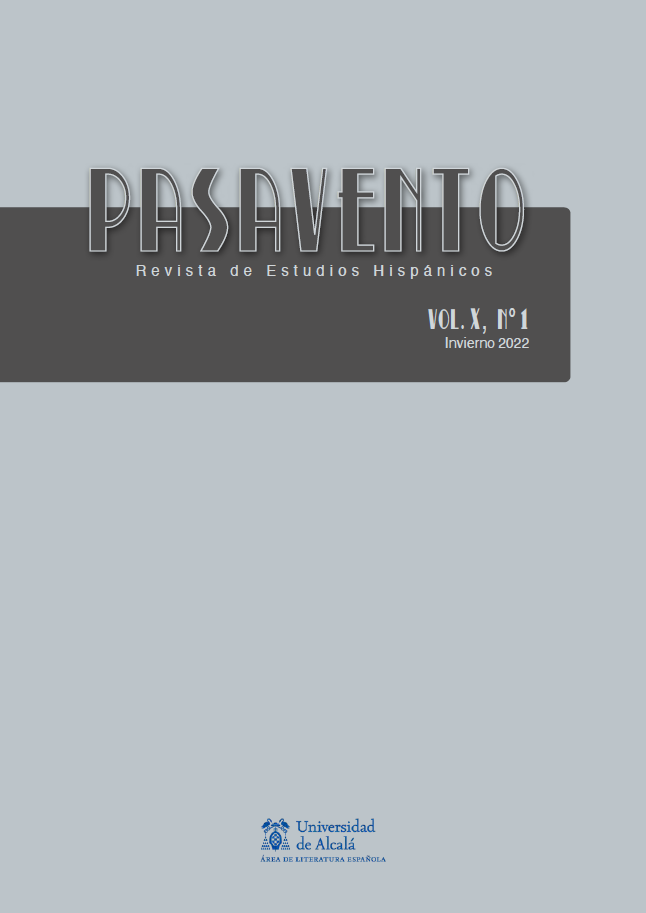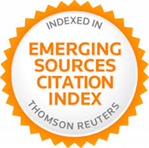“You are the Ones who Have no Memory!”
Mercedes Álvarez and Víctor Erice's Autofictional Cinema in Times of Crisis
DOI:
https://doi.org/10.37536/preh.2022.10.1.1489Keywords:
Cristales rotos, Cinema and Memory, Crisis, Autofictional Cinema, Contemporary Spanish Cinema, Mercado de futuros, Auteur Cinema, Mercedes Álvarez, Víctor EriceAbstract
This article explores two autofictional films that reflect upon the ongoing Iberian crisis and its interconnections with the alleged decline of personal memory. First, Víctor Erice’s Cristales rotos (2012) and Mercedes Álvarez’s Mercado de futuros (2011) are placed within the category of autofictional cinema produced from Spain in times of crisis. Grounded in a widespread sentiment of uncertainty, these films illuminate the impossibility of documenting absolute origins, be it the origins of capitalism as it was lived by the first working class, or the origins of the current financial recession. While both autofictions are self-referential films that point at their own fictional ways of writing, they remind the viewer not only of their status as text, or art, but also of the need to move beyond the text, notably, when they call out for practices of counter-memory of the crisis that have to do with the creative appropriation of space by citizens. Ultimately, the full memorializing power of Cristales rotos and Mercado de futuros lies in the original modes of artistic and social resistance that they not only document, but also at times enact, within the context of the Iberian crisis.
References
Alberca, Manuel (2007). El pacto ambiguo de la novela autobiográfica a la autoficción. Madrid: Biblioteca Nueva.
Álvarez, Mercedes (2005), entrevistada por Fabien Lemercier. “The Sky Turns: The Shadow of Time”, Cineuropa, <http://cineuropa.org/ff.aspx?t=ffocusinterview&l=en&tid=1052&did=53080> (20 de septiembre de 2021).
Álvarez, Mercedes (2009). “¿Por qué el documental?”, Arkadin 4.3: 74-77.
Álvarez, Mercedes (2011). Mercado de futuros. Leve Productora: España.
Astruc, Alexandre (1968). “The Birth of a New Avant-Garde: La Caméra-Stylo”, in The New Wave: Critical Landmarks, ed. Peter Graham. Garden City, NY: Doubleday.
Augé, Marc (1995). Non-Places: Introduction to an Anthropology of Supermodernity. Nueva York: Verso.
Barnouw, Erik (1993). Documentary: A History of the Non-Fiction Film. Nueva York: Oxford University Press.
Casas, Ana (2014). “La autoficción en los estudios hispánicos: perspectivas actuales”, in El yo fabulado: nuevas aproximaciones críticas a la autoficción, ed. Ana Casas. Madrid/Frankfurt: Iberoamericana/Vervuert.
Corrigan, Timothy (1991). A cinema without walls: movies and culture after Vietnam. New Brunswick, NJ: Rutgers University Press.
De Certeau, Michel (1988). The Practice of Everyday Life. Oakland, California: University of California Press.
Encarnación, Omar (2014). Democracy without justice in Spain. Philadelphia, PA: University of Pennsylvania Press.
Erice, Víctor (2005). “A propósito de El cielo gira’”, El País, https://elpais.com/diario/2005/05/13/cine/1115935209_850215.html> (20 de septiembre de 2021).
Erice, Víctor (2012). Cristales rotos, in dir. Erice et al Centro histórico. Nueva York: The Cinema Guild.
Erice, Víctor (2013a). “Víctor Erice y Pedro Costa, hoy en el Séptimo Vicio desde la Seminci, 22 de octubre de 2013”, in Podcast: Séptimo Vicio en Radio 3. Madrid: Radio Televisión Española, <http://www.rtve.es/radio/20131022/victor-erice-pedro-costa-hoy-septimo-vicio-desde-seminci/773120.shtml> (20 de septiembre de 2021).
Erice, Víctor (2013b). “Presentación de Centro Histórico, grabación de video de José Chica, 11 de diciembre de 2013. Madrid: Cineteca de Madrid.
Forné, Anna y Patricia López-Gay (2022). “Archival Practices in Post-millennial Documentary Cinema in Argentina and Spain”, in The Autofictional: Approaches, Affordances, Forms, eds. Alexandra Effe et al. Nueva York: Palgrave Macmillan.
Gag Artigas, Priscila (2017). “De la autoficción a la ficción colectiva: Y todos éramos actores: un siglo de luz y sombra de Gustavo Gac-Artigas”, Imposibilia: Revista internacional de estudios literarios, 14: 51-72. DOI: < https://doi.org/10.32112/2174.2464.2017.160>.
Godard, Jean-Luc (1975). A Woman Is a Woman; A Married Woman; Two or Three Things I Know about Her: Three Films. Londres: Lorrimer.
Godard, Jean-Luc (1988). Histoire(s) du cinema. París: Gallimard.
Guerín, José Luis (2004). “Work in Progress”, Rouge, http://www.rouge.com.au/4/work_progress.html> (20 de septiembre de 2021).
Huyssen, Andreas (2003). Present Pasts: Urban Palimpsests and the Politics of Memory. Stanford, CA: Stanford University Press.
Labanyi, Jo (2007). “Memory and Modernity in Democratic Spain: The Difficulty of Coming to Terms with the Spanish Civil War”, Poetics Today, 28.1: 89-116. DOI: <https://doi.org/10.1215/03335372-2006-016>.
López-Gay, Patricia (2020). Ficciones de verdad: Archivo y narrativas de vida. Madrid/Frankfurt: Iberoamericana/Vervuert.
Marías, Miguel, y Felipe Vega (1983), “En el camino del Sur. Una conversación con Víctor Erice”, Papeles de Cine Casablanca, 31: 59-70.
Martí, Octavi (2005), “El documental de Mercedes Álvarez sobre su aldea soriana gana el premio del Festival de París”, El País, <https://elpais.com/diario/2005/03/14/espectaculos/1110754802_850215.html> (20 de septiembre de 2021).
Maule, Rosanna (2008). Beyond Auteurism: New directions in Authorial Film Practices in France, Italy and Spain since the 1980s. Bristol y Chicago: Intellect.
Mayer, Sophie (2012). “Whose Waste? Mercedes Álvarez’s Mercado de futuros”, BFI Film Forever. <http://old.bfi.org.uk/sightandsound/newsandviews/festivals/blog/lff-2011-10-17-futures-market.php> (20 de septiembre de 2021).
Metz, Christian (1974). Film Language: A Semiotics of the Cinema. Oxford: Oxford University Press.
Molder, Maria Filomena (2017), “Green Leaves, Green Sorrows: On Victor Erice’s BrokenGlasses”, in Thinking reality and time through film, ed. Christine Reeh y José Manuel Martins. Newcastle upon Tyne: Cambridge Scholars Publishing, 244-265.
Morán Rodríguez, Carmen y Teresa Gómez Trueba (2017). Hologramas: realidad y relato del siglo XXI. Gijón: Trea.
Nichols, Bill (1991). Representing Reality: Issues and Concepts in Documentary. Bloomington: Indiana University Press.
Peralta García, Beatriz (2011). “Literatura y movimiento obrero en Portugal: la cultura política del socialismo en su teatro”, Espacio, tiempo y forma, 23: 37-54. DOI: <http://dx.doi.org/10.5944/etfv.23.2011.1573>.
Picornell, Mercè (2017). “Abriendo fisuras en el escenario de lo hiperreal: una lectura del documental Mercado de futuros de Mercedes Álvarez”, Confluencia, 32.2: 178-191. DOI: <https://doi.org/10.1353/CNF.2017.0009>.
Poyato Sánchez, Pedro (2009). “El realismo y sus formas en el cine rural español”, in El realismo y sus formas en el cine rural español, ed. Pedro Poyato Sánchez. Córdoba: Ayuntamiento de Dos Torres, 7-14.
Prádanos, Luis (2018). Postgrowth Imaginaries: New Ecologies and Counterhegemonic Culture in Post-2008 Spain. Liverpool: Liverpool University Press.
Rancière, Jacques (2006). Film Fables. Nueva York: Bloomsbury Academic.
Rowland Dix, Hywel (2018). Autofiction in English. Cham: Springer International Publishing.
Sheean, Jacqueline (2018). “Nostalgic Materialism: Crisis and Memory in Mercedes Álvarez’s Mercado de futuros”, Revista de Estudios Hispánicos, 52.2: 327-349. DOI: <http://dx.doi.org/10.1353/rvs.2018.0059>.
Srikanth, Siddharth (2019), “Fictionality and Autofiction”, Style, 53.3: 344-363. DOI: <https://doi.org/10.5325/style.53.3.0344>.
Yates, Frances (1966). The Art of Memory. Chicago: University of Chicago Press.
Downloads
Published
How to Cite
Issue
Section
License
Copyright (c) 2022 Pasavento. Revista de Estudios Hispánicos

This work is licensed under a Creative Commons Attribution 4.0 International License.








